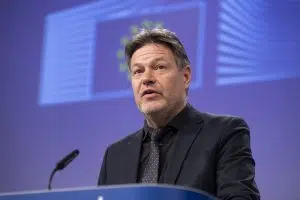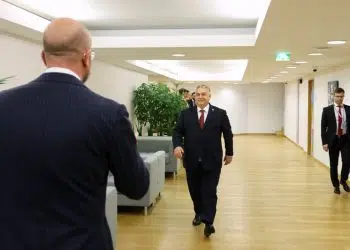Brussels – New year, old approach to investment for the green industry, which benefits the states with more of their own resources. The European Commission today (Jan. 8) approved two state aid schemes of France and Germany, in line with the temporary energy crisis and transition framework updated in November last year to counter the effects of the Inflation Reduction Act.
On the one hand, nearly 3 billion euros to support Paris in the production of batteries, solar panels, and wind turbines. On the other, more than 900 million to Berlin to support Swedish battery manufacturer Northvolt in building a gigafactory for battery cell production in Heide, Schleswig-Holstein. “Today’s decisions show that our state aid rules allow member states to accelerate zero-interest investment at this critical time while protecting the level playing field in the single market and cohesion objectives,” commented Executive Vice President for Competition, Margrethe Vestager, who presented the measures at a press conference in Brussels alongside Robert Habeck, Germany’s Vice Chancellor and Minister for Economic Affairs and Climate Protection.

To present a green light for a state aid scheme alongside a minister of the 27 is an unconventional move, but one that can be explained because it is a green light that is different from others and therefore worth an announcement from the podium. The German subsidy is the first individual measure in the temporary crisis and transition framework that allows de facto governments to provide larger amounts of aid if investment risks being diverted from the EU to non-EU countries because of the availability of foreign subsidies.
A countermeasure, in essence, by the EU to the U.S. anti-inflation plan, the Inflation Reduction Act (IRA), the nearly $370 billion green technology investment plan launched by the U.S. government in August. The plan has worried the EU in recent months because it could disadvantage European companies since it provides tax breaks to buy U.S. products including cars, batteries, and renewable energy. The future plant will have an annual capacity of 60 GWh, or 800 thousand to 1 million electric vehicles per year, depending on battery size. The plant will start production in 2026 and reach full capacity in 2029.
The aid, the EU executive further explains, will take the form of a €700 million direct grant and a €202 million guarantee. Without the aid, Brussels points out in a note, Northvolt would have established the plant in the United States, where it was offered support in particular under the Inflation Reduction Act.
The Sovereignty Fund that isn’t there
Relaxation of state aid rules without fragmenting the single market, flexibility of existing funds in the short term, and a Sovereign Wealth Fund in the long term: These are the three axes on which Brussels has been working in recent months to respond to the possible negative consequences of the IRA on the competitiveness of the European single market. Brussels knows that the loosening of aid rules risks creating a fragmentation of the single market and a rift between states that have fiscal space for public aid (much of which is notified by Germany and France) and those that do not, such as Italy. To compensate for the easing of state aid, the Commission started the debate on a Sovereign Wealth Fund, soon downsized to a Clean Technology Platform (STEP, Strategic Technologies for Europe Platform) for which it has earmarked 10 billion euros until 2027 through the multi-year budget midterm review on which negotiations are underway among the Twenty-Seven.
Hence, the European Commission asked EU member states to mobilize an additional 10 billion euros until 2027, increasing the scale of the Union’s long-term budget, to increase the budgets of some existing programs: InvestEu (3 billion), Horizon Europe (0.5 billion), Innovation Fund (5 billion) and European Defense Fund (1.5 billion) and bring the platform to life. Compared to the Commission’s proposal, the financial support to STEP will come out sharply scaled back in negotiations between governments. In the European Commission’s idea it was supposed to be a full-fledged Sovereign Wealth Fund, but setting it up would take years and with the expiration of the legislative term there was no room for it. On the negotiating table, Michel’s proposal—which will be the focus of the extraordinary EU summit on February 1—is to mobilize just 1.5 billion euros.
English version by the Translation Service of Withub




